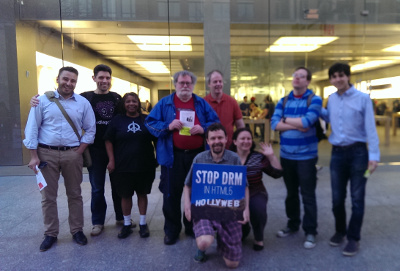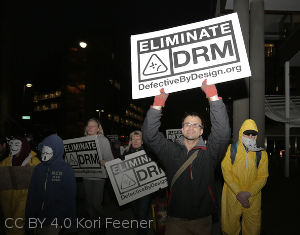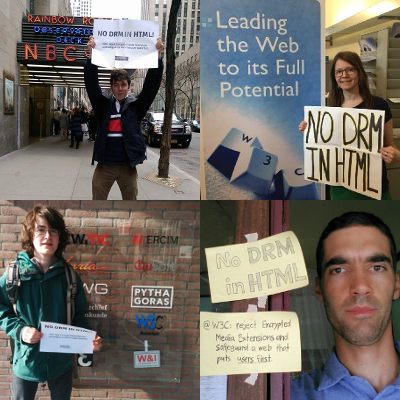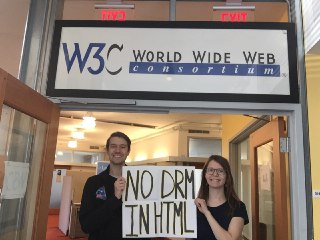This post is by Kat Walsh, a lawyer with extensive background in the free culture movement, who recently joined the Free Software Foundation's board of directors. The post was written for the 2015 International Day Against DRM.
Everyone knows how to recognize cartoon villains. They twirl their mustaches as they kick puppies, delivering speeches about world domination for personal gain, and often let their arrogance lead to their undoing. People recognize this kind of evil immediately and rise up in protest, banding together to resist. In the real world, most evils are much harder to see coming: they look reasonable at first, perhaps taking just a little bit from many people to get to some unexpected end. Once the effect is widespread enough that most people notice, you have a systemic problem that's hard to get rid of. The evil that's easy to identify is easy to fight. The one that initially looks like something good can betray you, and that's why when we recognize it, we need to speak out against it.

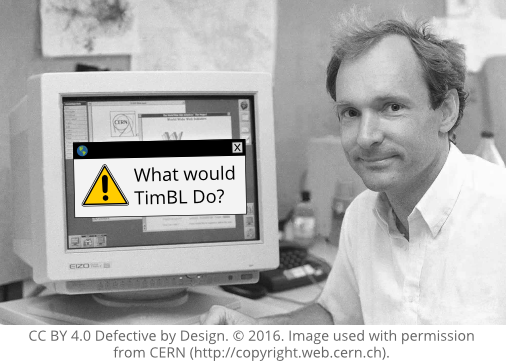 Twenty-five years ago, Berners-Lee invented the World Wide Web. Back then timbl -- as he's known online -- declined opportunities to lock down his creation and established himself as an advocate for a freedom-affirming, interoperable, and universally accessible World Wide Web. Now he's considering turning his back on this vision to make Netflix, Google, Apple, and Microsoft happy.
Twenty-five years ago, Berners-Lee invented the World Wide Web. Back then timbl -- as he's known online -- declined opportunities to lock down his creation and established himself as an advocate for a freedom-affirming, interoperable, and universally accessible World Wide Web. Now he's considering turning his back on this vision to make Netflix, Google, Apple, and Microsoft happy.